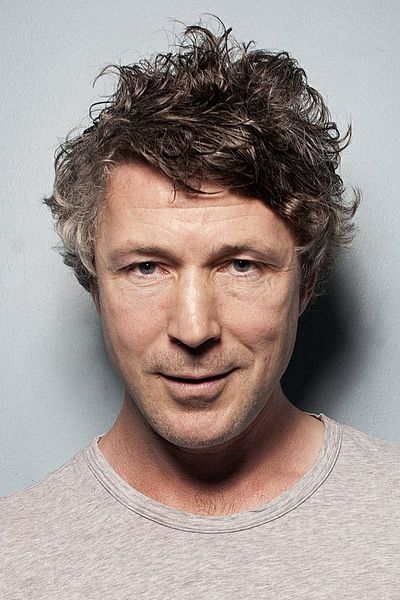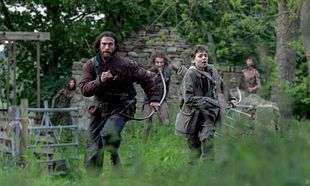The McDonagh Brothers both started off on an even keel, with Martin writing and directing a dark comedy starring Brendan Gleeson, In Bruges, and John Michael writing and directing a dark comedy starring Brendan Gleeson, The Guard. Then Martin seemed to go too big, too flashy, and ultimately too much too soon with Seven Psychopaths, and perhaps most vitally, did it without Gleeson. John Michael held on to his leading man, and his second movie seems even smaller and tighter than the first, and in the process has presented us with one of the best and most powerful Irish movies ever made.
Gleeson plays Father Lavelle, a no-nonsense but grounded priest on the gorgeous Sligo coast, and during confession one of his parishoners tells him that he is going to kill him in a week's time. Instead of trying to sway his would-be assassin, the good priest simply continues about his business, as he plays the role of one part police detective, one part social worker, and one part therapist for the entire village. Despite the tiny population, the village is full of a vast array of characters, with an excellent supporting cast - Kelly Reilly, Dylan Moran, Chris O'Dowd, Domhnaill Gleeson, David Wilmot - bringing them all to life.
And that's before even mentioning Brendan Gleeson, who is nothing short of phenomenal here, owning the screen like never before, giving a true powerhouse performance. Precise, intelligent, emotional, and profoundly deep, it’s exactly the kind of work that is overlooked by award shows.
The film isn't flawless - Aiden Gillen is terrible compared to the rest of the cast, and a local 'Nuu Yawk' male prostitute seems to be from a different story entirely - but the rest of the movie is so staggeringly brilliant that you forgive and forget these downfalls.
Despite the gloomy atmosphere and constant sense of foreboding, McDonagh hasn't forgotten his funny bone, and there are plenty of laugh out loud moments to be found throughout, but mostly, Calvary is about guilt, and the assignment of blame. Father Lavelle may be a good priest, but he is on the receiving end for an entire religion's mistakes, with the righteous anger of everything from the abuse in the churches to the current state of the country's economy hurled in his direction.
It's been a long time since an Irish film managed to successfully tell Ireland's story in such a perfect microcosm, and it's been an even longer time since an Irish film was this unmissable.




















































































